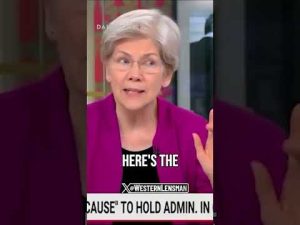**Market Mayhem: The Uncertain Seas of Wall Street**
In the wild world of finance, things have been anything but calm lately. Stock markets across the globe have experienced a rollercoaster ride, reminiscent of the early pandemic days. The dreaded VIX, which measures market volatility, has spiked, sending shivers down the spines of investors everywhere. But what’s really going on behind the scenes? With whispers of the Federal Reserve possibly stepping in to soften the blows, the financial landscape is anything but clear.
The stock market turbulence stems from a mix of uncertainty surrounding trade policies and a broader economic landscape that feels like a jigsaw puzzle missing half the pieces. Investors are scratching their heads, trying to make sense of policies that are still up in the air. With so many unknowns, trying to forecast the market is like predicting the weather in a hurricane; chances are, they’ll get it wrong most of the time.
Adding another layer to the complexity is the bond market, which is acting strangely. Typically, when stocks wobble, investors flock to bonds like kids rushing for candy. But recently, while yields on international bonds dipped, U.S. Treasury yields did the opposite and climbed. That might sound confusing, but it’s just another sign that investors are feeling the effect of mixed signals. As hedge funds scramble to dial back their risky bets, the U.S. market remains relatively orderly, functioning as it should given the circumstances.
Meanwhile, the Federal Reserve has decided to take a cautious approach. Recently, they slowed down the pace of shrinking their balance sheet, which some might see as a sign of uncertainty about how much liquidity the market really needs. Instead of hitting the brakes completely, the Fed is simply slowing down, trying to find that sweet spot without triggering another economic hiccup. With reserves still labelled as “abundant,” the hope is to maintain a smooth ride even through bumpy stretches.
On the global front, the Fed is prepared to provide dollar support to other central banks if the need arises. With standing dollar swap lines ready and waiting, the Fed has a safety net for international markets that rely heavily on U.S. dollars. This strategy not only helps stabilize those markets but also ensures that American consumers can continue spending, which is crucial for economic health. So, if the storm clouds gather again over the dollar funding markets, the Fed is poised to swoop in and lend a hand, keeping finances flowing.
All in all, the current financial climate is a tangled web of uncertainty and volatility. Investors are in a tizzy, and though the Fed appears to be steering the ship carefully, no one can quite predict where the winds will take us next. As they say, in the world of finance, expect the unexpected, and always, always keep your seatbelt fastened.







